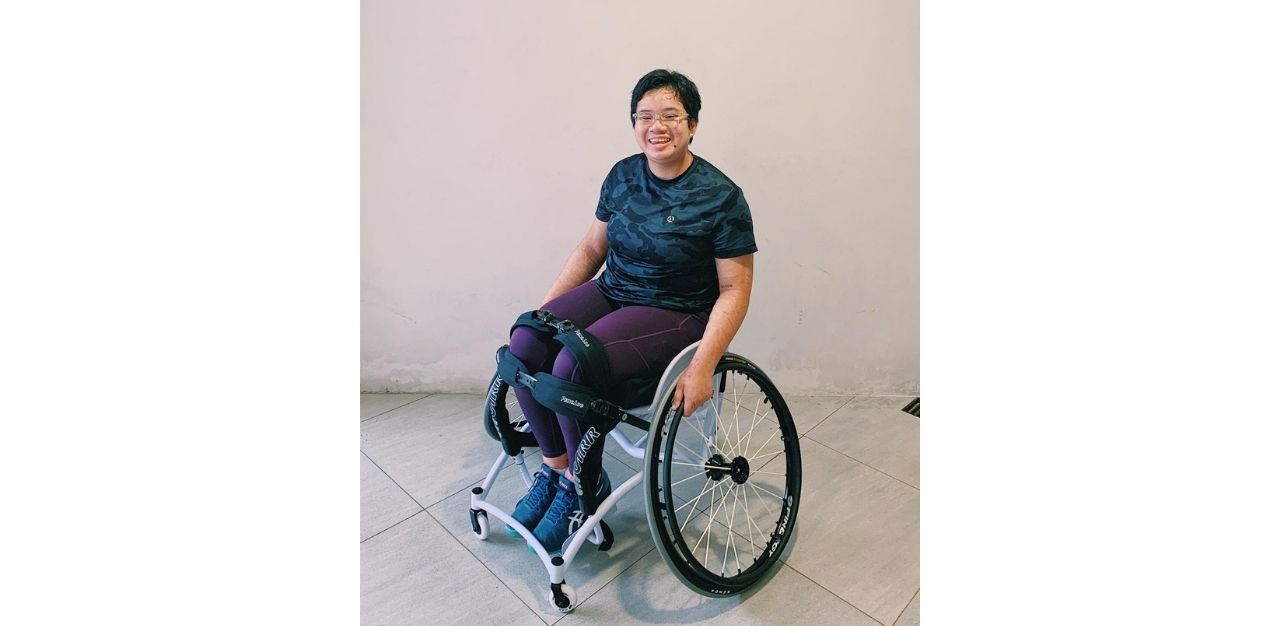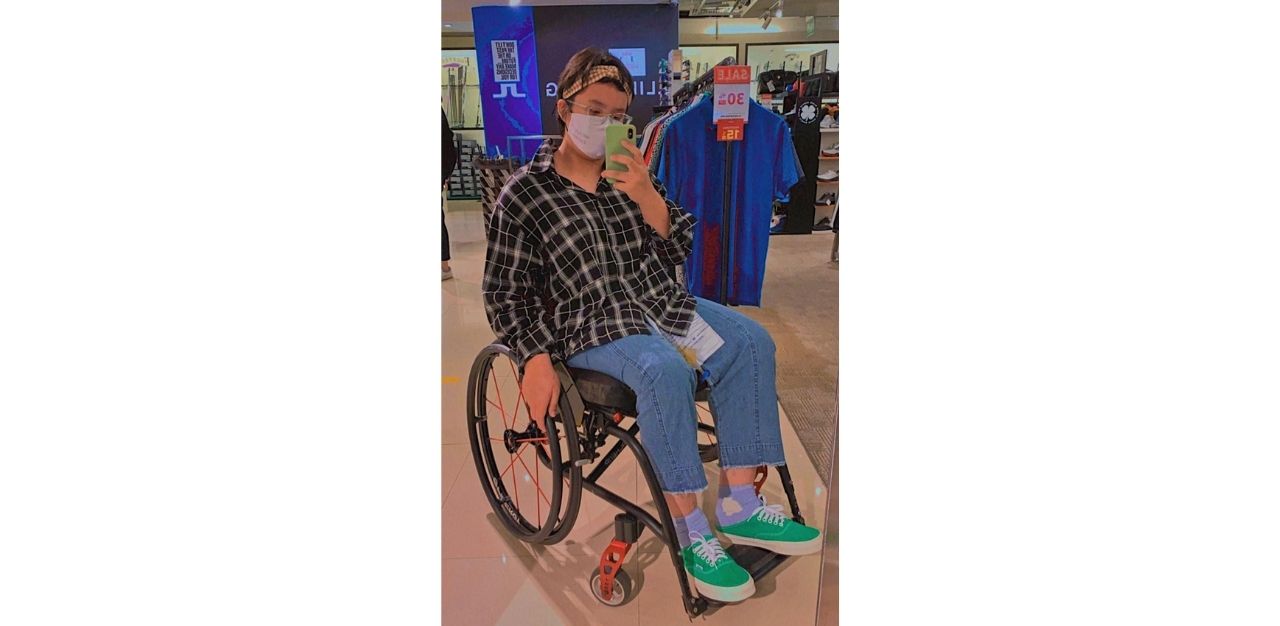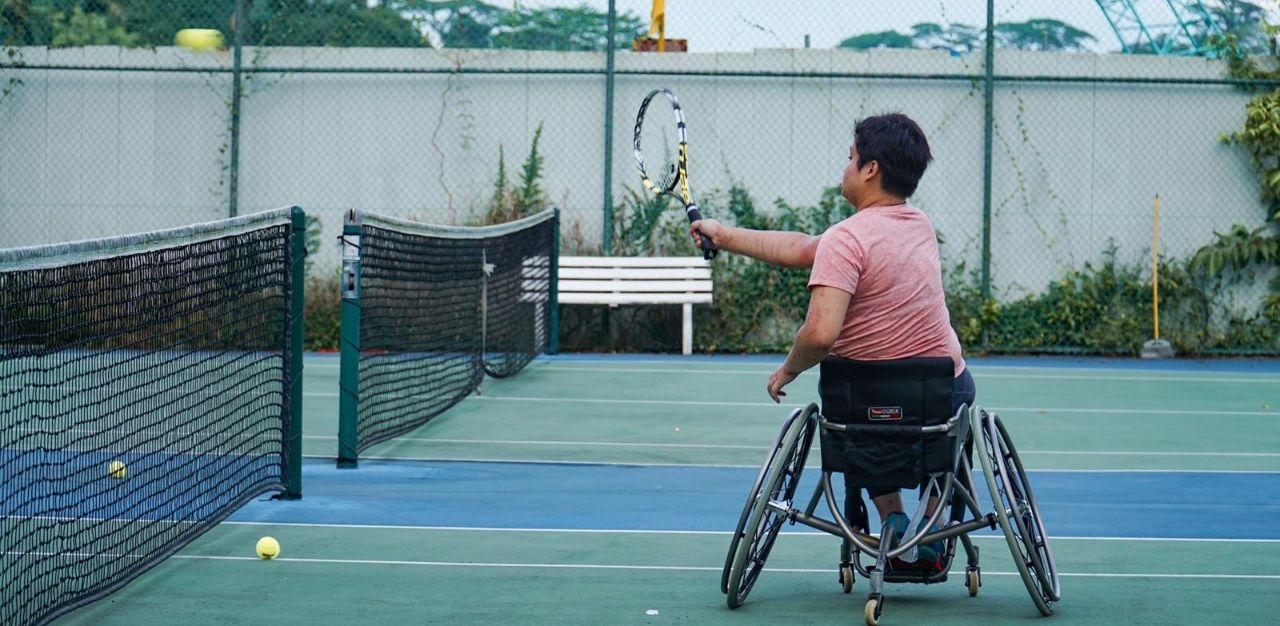Valerie Eng experienced her first psychotic episode at school in 2016, when she was just 14 years old.
“I ran to the toilet because I didn’t want to lash out and hurt anyone else,” she recalls. “I wanted to direct it inwards… I started seeing faces on the walls, eyes on the ceilings, and started feeling barbs in my skin. It was overwhelming. So I dissociated.” She later discovered that she had vandalised the toilet during her dissociative episode.
Ms Eng remembers feeling “alienated” from the school system, and conflicted at the subsequent mental health support she received.
“I feel like [the school was] very scared of me because they didn’t know what to do. They didn’t want to hurt me, but at the same time, they didn’t want [me] to hurt other students,” she explains.
Following the incident, she was suspended, but elected to leave school the next year, and transferred to a private school.
But her life took a turn after a fateful suicide attempt in 2018 that left her disabled.
“That attempt made things much worse for me because of the stigma and discrimination I faced, and also because of how my mental health really declined,” Ms Eng says, adding that she was eventually diagnosed with borderline personality disorder (BPD) and schizoaffective disorder.
Today, the 20-year-old mental health and disability advocate seeks to effect change through speaking up about her experiences.
Confronting societal stigma
Microaggressions, which refers to both verbal and behavioural slights, are just some of the discriminatory behaviours that Ms Eng has faced.
“[It has happened] when I’m out and in a wheelchair. And they’re trying to push my wheelchair or [say things] like, ‘We’re so blessed to see you today, you make us feel so brave’,” she says.
Such behaviours have also perpetuated her feelings of being marginalised.
“It is mostly because of the way that people look at me because of my scars when I’m out, or once they find out my diagnosis [of BPD]. They have a lot of preconceived notions. Because of that, they treat me very differently, and [their] attitude towards me shifts,” she says.
“I feel that I am not just a citizen; I am also my illness… And because of that, I feel that my illness is very, very strongly tied to being Singaporean.”
Other comments she has received include queries on whether she has attempted to practice activities such as yoga and meditation, from those who have spotted her scars. She feels that these behaviours can inadvertently glorify those in the disabled community: “There’s nothing glorious about my disability, such that you need to talk about it and make it an inspirational ‘porn’ kind of thing.”
But she is thankful for the conversations that she has had online. Describing online communities as being “more saturated”, as those who interact with her tend to have prior interest in mental health or disability, she explains that the people she converses with online tend to “already know how people with disabilities or people with mental illnesses want to be treated”.
Ultimately, Ms Eng wishes for the public to be more understanding towards those with disabilities and mental health conditions.
“Psychiatric patients are not demons, so please don’t banish us or hate us. [We, and] people with disabilities are not impeccable. Sometimes we fall, sometimes we have relapses, but despite that, please forgive us and lift us up,” she says.
“We deserve what you guys deserve as well, [be it in terms of ] rights and access; we deserve the same. So please include us. And we are really trying – persons with disabilities, as well as mentally ill people. Please hold space and grow with us.”

Effecting change for marginalised communities
Affordable care is one key challenge that the mental health community faces, says Ms Eng, explaining that the private healthcare system is expensive.
She opines that inclusivity, better representation of the mental health and disabled communities, as well as education are also key to reducing societal stigma.
This is especially significant for those with neurodivergent conditions, such as dyslexia and attention deficit hyperactivity disorder (ADHD). “We need to work on including diverse identities in public discourse… disability… And also mental health issues like BPD and obsessive-compulsive disorder (OCD),” she said.
Accessibility is yet another vital need to be addressed – for physical spaces and healthcare alike.
“Not all overhead bridges are wheelchair friendly,” she says, adding that hills and slopes can also be difficult to navigate in a wheelchair.
Having access to healthcare services such as occupational therapy is yet another challenge. While such services are offered by local hospitals, booking appointments can be difficult, due to a shortage of occupational therapists locally.
“Even though they provide occupational therapy services, they are very fully packed. You don’t have any appointments available. So it’s not a continued support, it’s very irregular,” Ms Eng explains.

More resources can be made available to those in the mental health and disabled communities, states Ms Eng, asserting that infrastructural change is needed to better meet the needs of these communities.
One such issue is the availability of specific wards for those with lesser-known mental health conditions such as BPD.
“We only have one mental health hospital, Institute of Mental Health (IMH)… We don’t have residential treatment centres for people [with lesser-known mental health conditions such as] BPD,” she says, adding that there is also a lack of support groups for these conditions, while more resources are available for mental health conditions such as depression and anxiety.
She also hopes for greater equality within the field of disability sports.
Having played able-bodied tennis since she was seven, Ms Eng aspires to compete in the Paralympics in the future. Drawn to the precision of the game, she explains that tennis acted as a form of catharsis for her: “I always found that it was very redeeming in that it taught me how to control myself, while at the same time I could unleash my rage and my fury on the court.”
She shares that disability sports such as swimming tend to receive more resources compared to sports such as wheelchair tennis, such as funding, access to gymnasiums, and physio(therapy), attributing this to the popularity and traction of such sports.
“[There is a] focus on Paralympic athletes that are able to show the most results in a short period of time. Those who are well known get a lot of support, while other people who are just stepping out into the scene into less known sports like tennis are not supported,” she says.

The significance of National Day
Pride and grief are what come to mind for Ms Eng at the thought of National Day. “I suppose there’s pride but I mostly just grieve for those that our country has failed, in terms of abuse and suicide poverty, and the lack of resources. It’s also a reminder of how small a nation we are, and how similar our needs actually are,” she says.
But despite all that she has faced, Ms Eng is hopeful for the future.
“I have seen how people find comfort in the smallest things in Singapore, in communities or friends, and how we build on those,” she muses. “I’m very confident that if we continue to be brave enough to speak up for what we believe in, change will happen. I think the system will eventually have to bend to our needs and to our pleas.”
She also takes pride in Singapore’s rich cultural heritage.
“When [friends overseas] ask me about the slang [and] dialect that I use, it means a lot to me because that’s where Singapore took me through… Being Singaporean, I can truly expand on my pride for my identity that is derived from my citizenship in different countries and now in Singapore,” she says.
“What it means to me is that there is diversity. And there’s strength and differences that bind us together.”
Join the conversations on TheHomeGround Asia’s Facebook and Instagram, and get the latest updates via Telegram.














